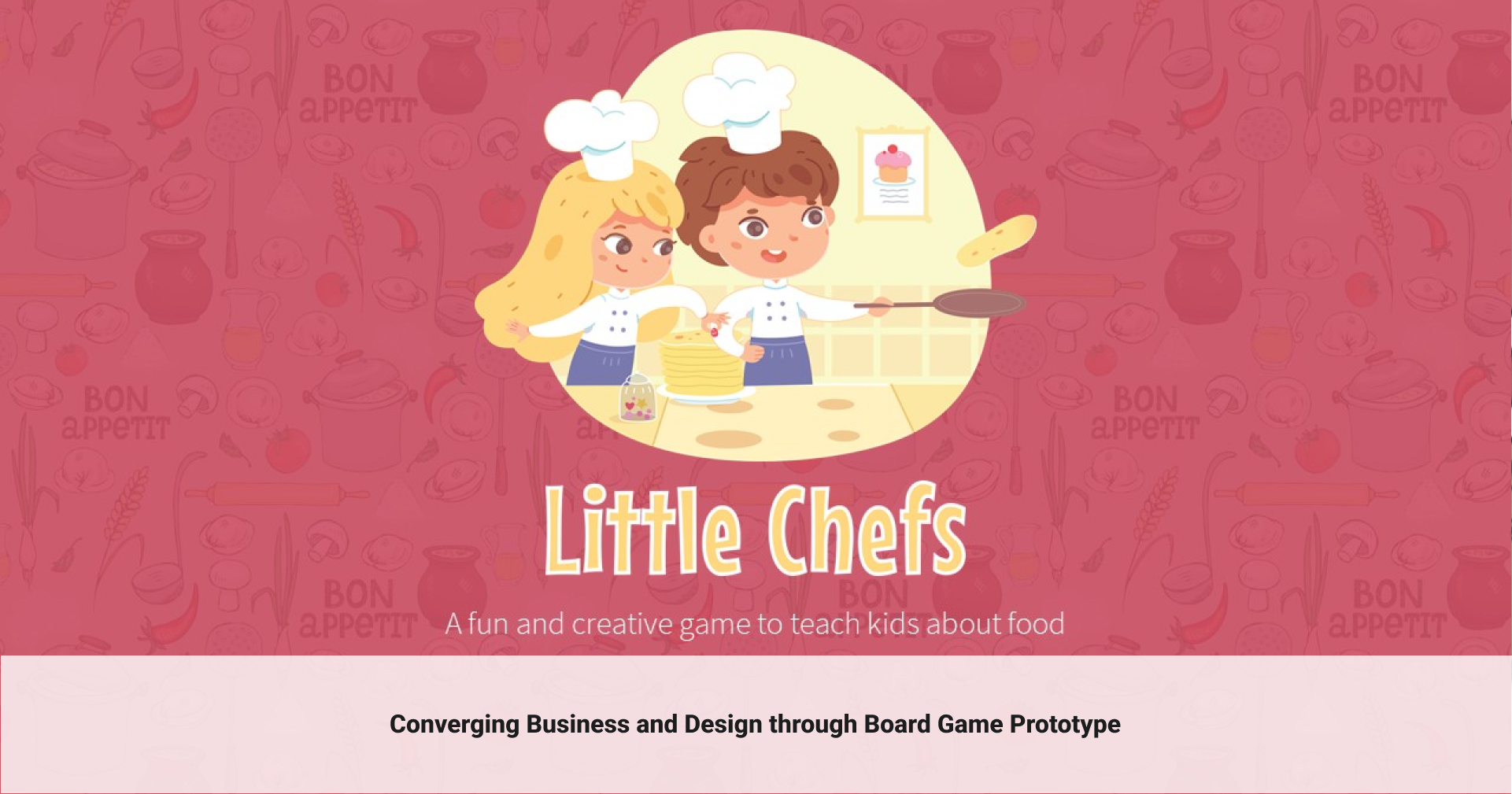
PROJECT OVERVIEW
- This project was a part of the Design Business & Entrepreneurship course to give students a realistic grasp of business and project management in the design industry, by incorporating a board game design assignment with actual working prototype.
- The project involved the application of design sprint methodology, a time-constrained framework aimed at solving complex problems and fostering innovation.
- The project fostered interdisciplinary collaboration, allowing students from different backgrounds to contribute their unique perspectives and expertise, mirroring the real-world dynamics of professional design teams.
- We collaborated in a team to develop a board game as a tangible outcome of the project, allowing us to apply our creativity and problem-solving skills within a structured business context.
- The design sprint process guided us through various stages, including problem identification, ideation, prototyping, and testing, enabling us to gain hands-on experience in iterative design and rapid decision-making.
My Role
UX researcher | Product Designer
Asset Manager | Print and Media Co-ordinator | Visual Designer
Tools
Figma | Trello | Adobe Photoshop Adobe Illustrator | Prototype | Miro
Topics
Board Game Design | Concept Development | Sprint and Agile Methodology | Research
Timeline
4 Weeks
PRODUCT OVERVIEW
Little Chef is an engaging board game designed for children above 8, where players create unique recipes by collecting ingredient cards to win. With an interactive spin wheel offering exciting choices and decisions, this game combines fun and strategy. It promotes creativity, critical thinking, and social interaction among four players, making it a delightful culinary adventure for aspiring young chefs. Alongside the exciting gameplay, this educational game also provides fun facts about each ingredient, offering an opportunity for players to learn and expand their knowledge about food and cuisine. Combining entertainment with education, Little Chef is an enriching culinary adventure that sparks curiosity and promotes a deeper understanding of the world of food among young childrens.
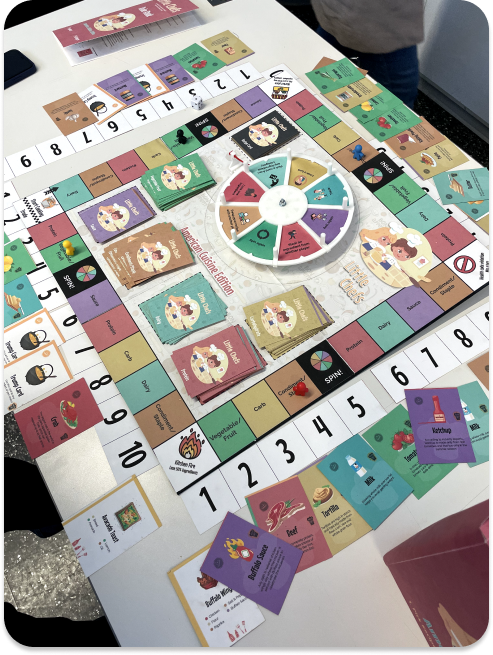
MEET THE TEAM

SPRINT OVERVIEW
In just four weeks, we successfully completed the sprint process for the development of the board game. As we had limited number of weeks to complete this project this methodology helped us achieve the desired outcome. We used Trello, as a collaborative tool to manage and coordinate the research and the design outcomes. This intensive and focused approach also allowed us to efficiently navigate through the various stages of the project, including problem identification, ideation, prototyping, and testing. By utilizing agile methodologies, we were able to iteratively refine and improve the game concept, mechanics, and components. The sprint process also enabled us to meet tight deadlines, make informed decisions, and deliver a high-quality board game that aligns with the project objectives.
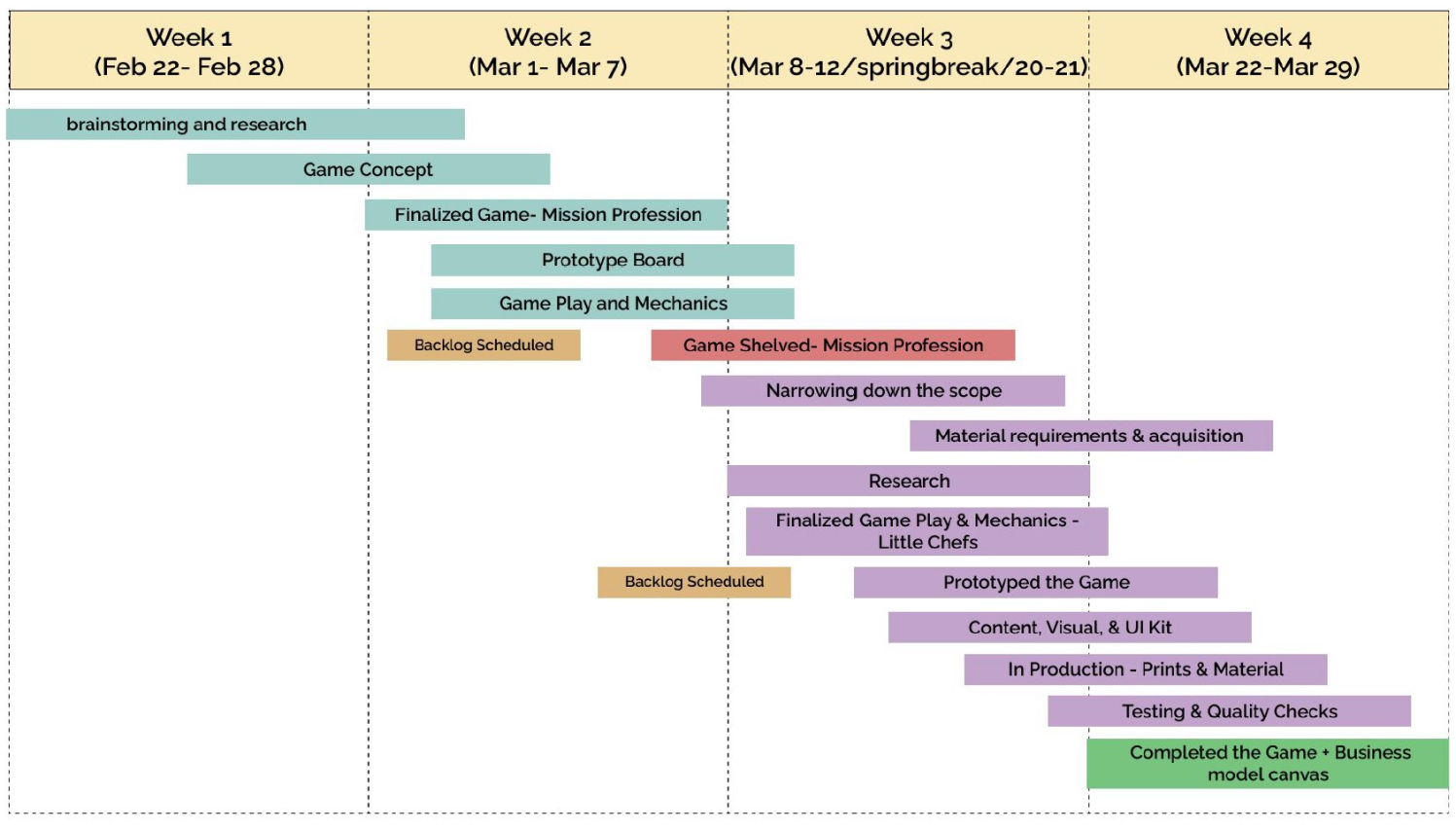
SPRINT CHART
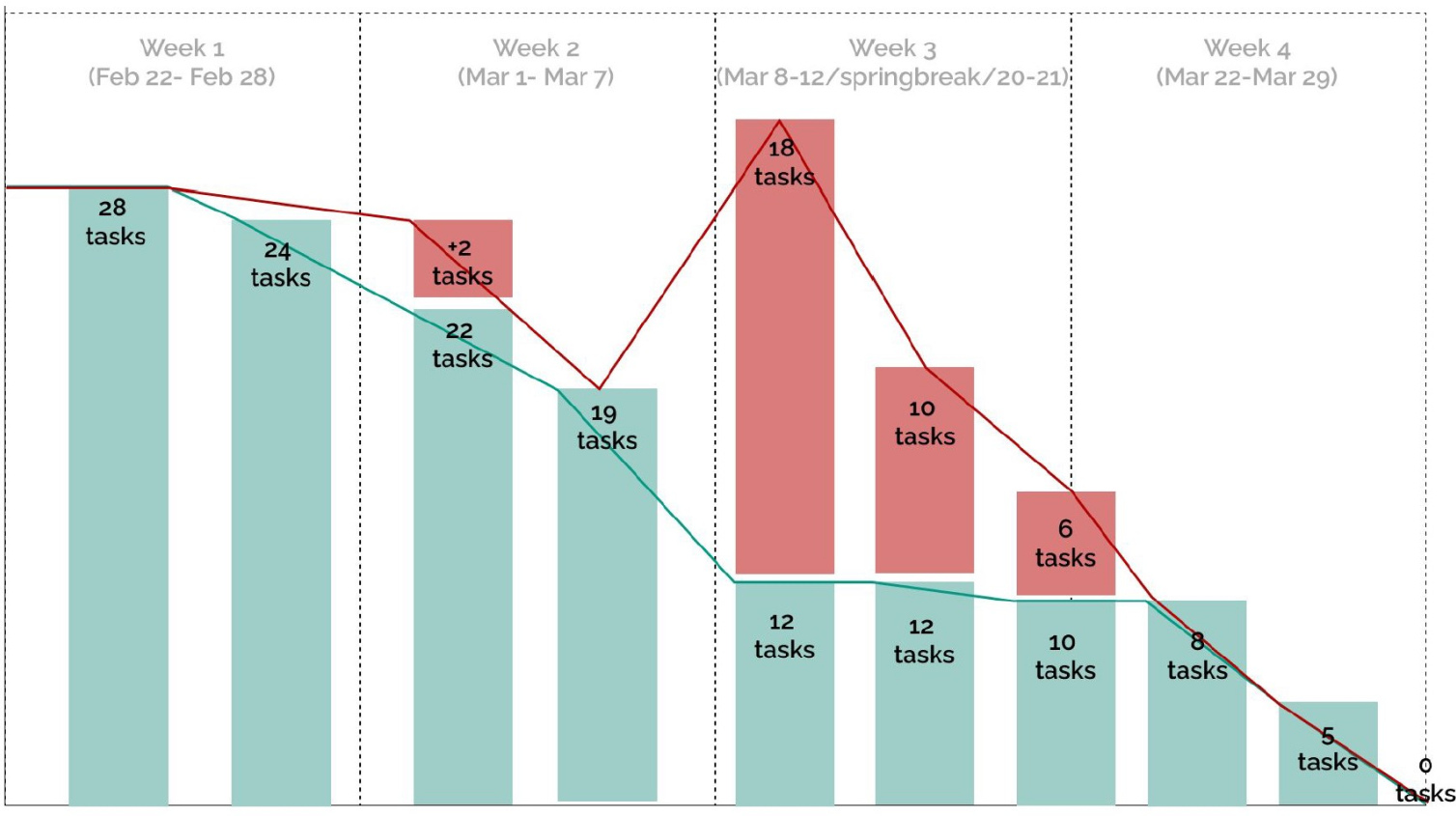
Burndown chart displaying the progress of the sprint.
WEEK - 01
Brainstorming, Research and Concept Ideas
During the first week of the sprint, our team engaged in a lively brainstorming session focused on our favorite childhood games. We explored a range of popular titles, including Monopoly, Game of Life, Psych!, Cards Against Humanity, Krusade, and Kitchen Rush, drawing inspiration from their unique gameplay elements. As we delved deeper into our discussions, the idea of creating a board game that educates kids about the nutritional aspects of food began to take shape. The subsequent research and brainstorming sessions saw each team member presenting their individual ideas, which eventually culminated in the birth of our game concept - Mission Profession. With clear roles and responsibilities established, we embarked on thorough research of the assigned topics, setting the stage for the subsequent stages of the sprint.
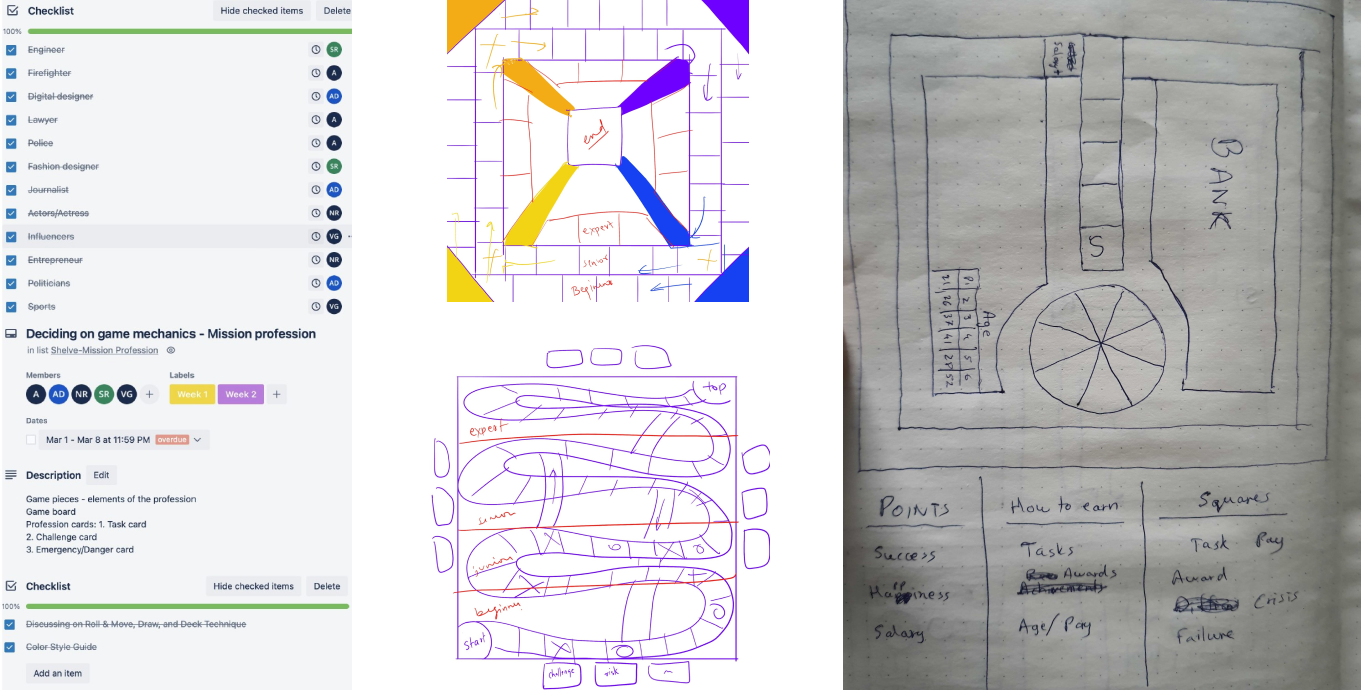
In "Mission Profession," our board game concept developed during the sprint, our primary aim was to educate children and young adults about the diverse career paths available to them. By assuming the role of a profession within the game, players get the opportunity to experience both the advantages and challenges associated with that specific career. Through engaging gameplay, they gain valuable insights into different professions, fostering career exploration and awareness. By immersing themselves in various roles, players develop a deeper understanding of the responsibilities, skills, and rewards that come with each career path, helping them make informed decisions about their future endeavors.
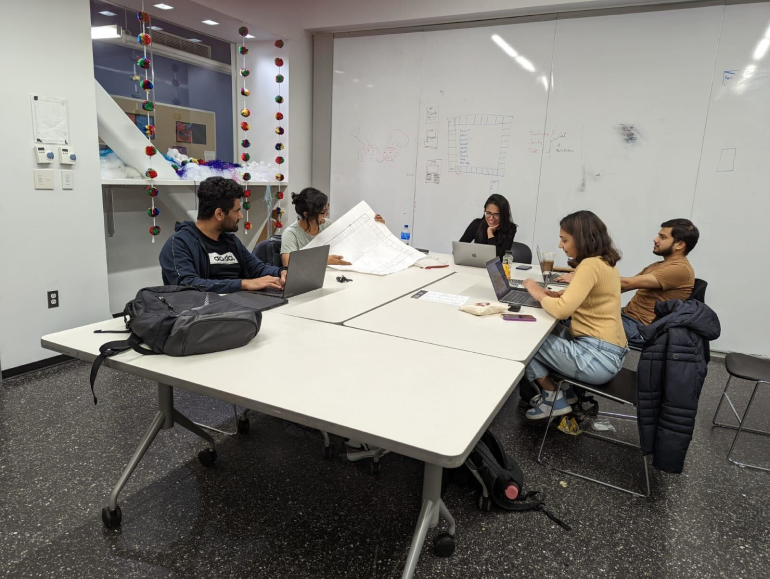
WEEK - 02
Finalizing concept, Game Board & Design Development
During the second week of the sprint, our team reconvened to review our research findings and initiate the game-building process. We engaged in in-depth discussions regarding critical aspects such as the board layout, game mechanics, and overall gameplay experience.

With the digital board game concepts and a visually refined game board in place, our team progressed towards deeper research and exploration of the game's intricate aspects. We delved into a comprehensive examination of each profession, aiming to develop immersive playable mechanics tailored specifically to our targeted user group. By delving deeper into the world of professions, we sought to enhance the authenticity and educational value of the game, ensuring an engaging and meaningful experience for our players. Through our dedicated research efforts, we aimed to refine the mechanics and gameplay elements, further solidifying the foundation of our board game concept.
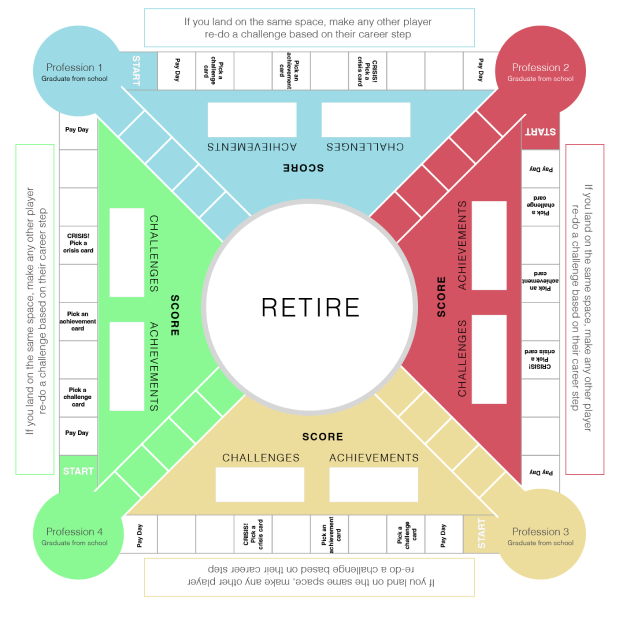

WEEK - 03
Major Pivot, Reiterations and Concept Strategies
Due to the pivot, Week 3 of the sprint was loaded with additional tasks in view of time constraints. We started from designing a brand new concept by sketching out ideas about our secondary game concept, for which we initially had some design discussions about. The team unanimously decided to focus on one of the professions that we could relate to best. Considering our love for food, we decided to dive deeper into the profession of a Chef, and all our further collaboration was directed towards developing a food-based game.
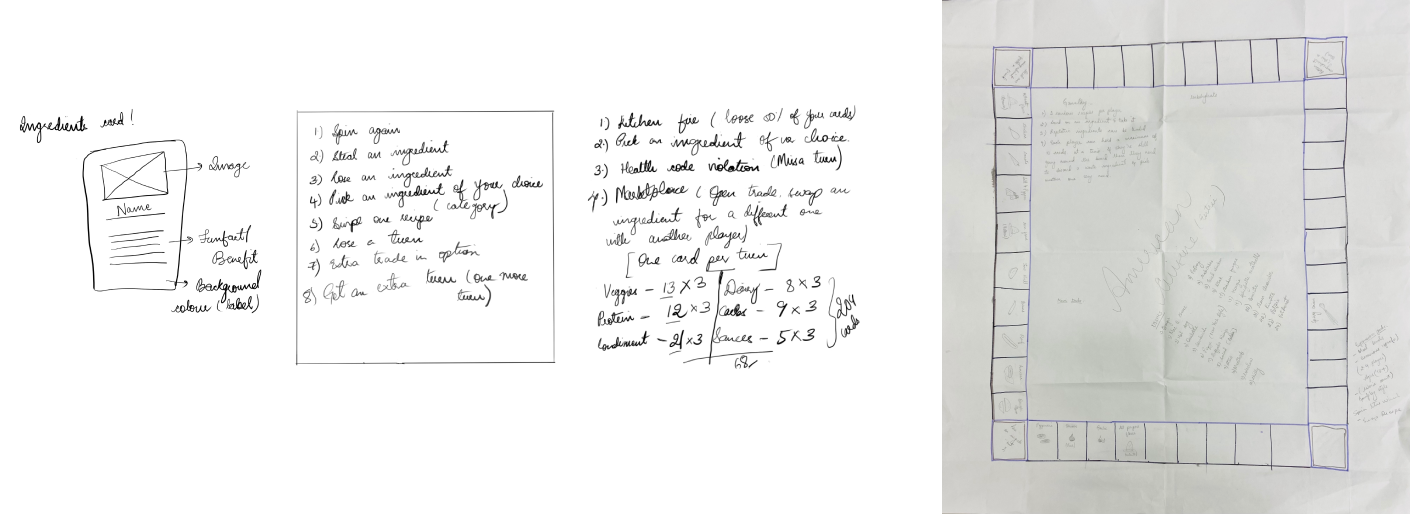
Thorough research and information gathering led us to an exciting direction for our new game. After careful consideration, we chose to focus on American Cuisine, resulting in the birth of "Little Chefs." With this culinary-themed game, we embarked on developing its concept, mechanics, gameplay, and design. Introducing new elements such as the spin wheel, trump cards, and a trade system, we aimed to create an engaging and enjoyable experience for children while simultaneously fostering the development of their cognitive skills. By blending fun gameplay with educational components, "Little Chefs" emerged as a captivating board game that combines the excitement of culinary exploration with the polish of strategic thinking.
During the sprint's third week, our team diligently focused on designing initial prototypes for the board game, utilizing our previous concepts as a foundation. Through innovation and iteration, we strived to refine and enhance the gameplay experience. As the week progressed, we made significant strides in finalizing the primary and secondary mechanics of the game. This encompassed carefully determining the playing items and incorporating captivating features that would captivate and engage players. By dedicating our efforts to this stage, we ensured that the core elements of the game were well-defined and aligned with our objectives, setting the stage for a compelling and immersive board game experience.
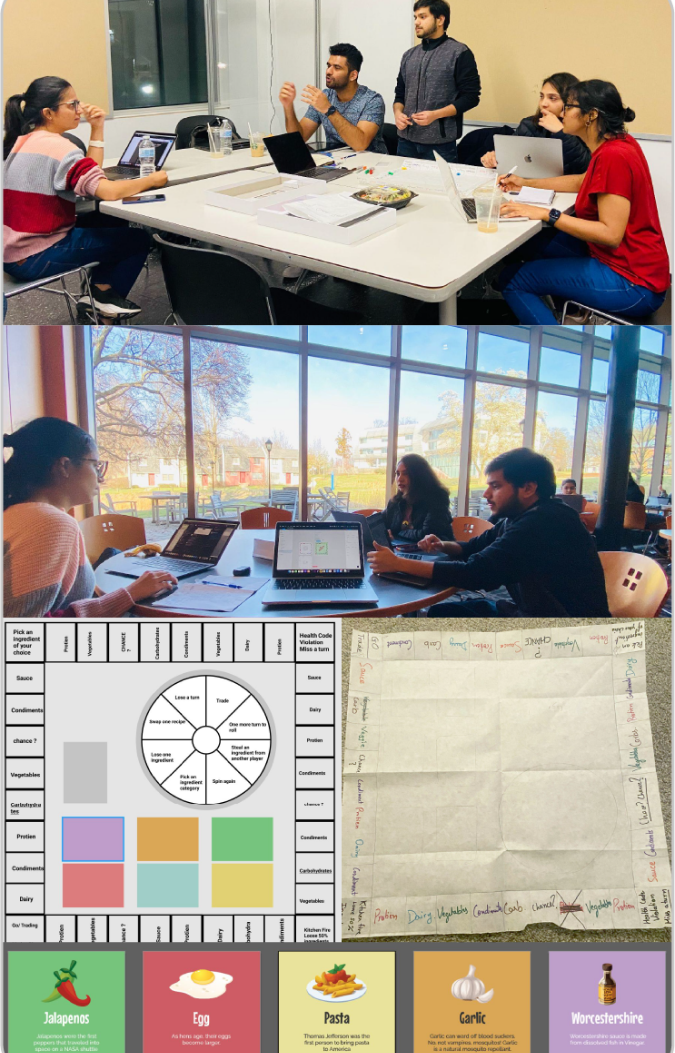

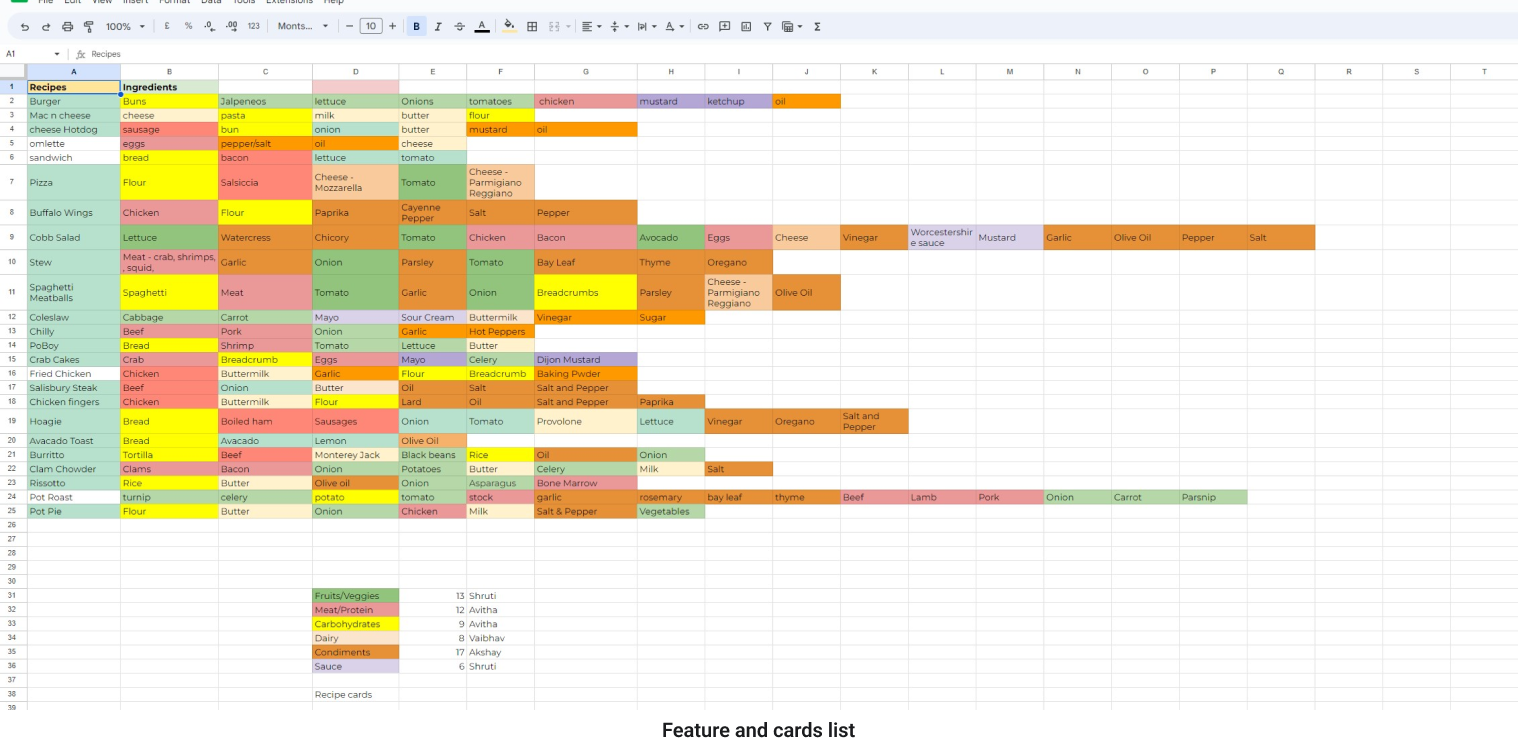
Brand Identity, Design Style & Game Concept
In creating a brand identity and style guide for "Little Chefs," we had to establish a vibrant and playful visual presence that reflects the game's culinary theme. With a distinctive logo, a lively color palette, playful typography, and whimsical illustrations, the brand will captivate children while maintaining a cohesive and memorable look. Clear guidelines for typography, layout, and imagery will ensure consistency across packaging, marketing materials, and components. We believed that the style guide will serve as a comprehensive reference for maintaining a strong and cohesive brand identity throughout all brand communications.
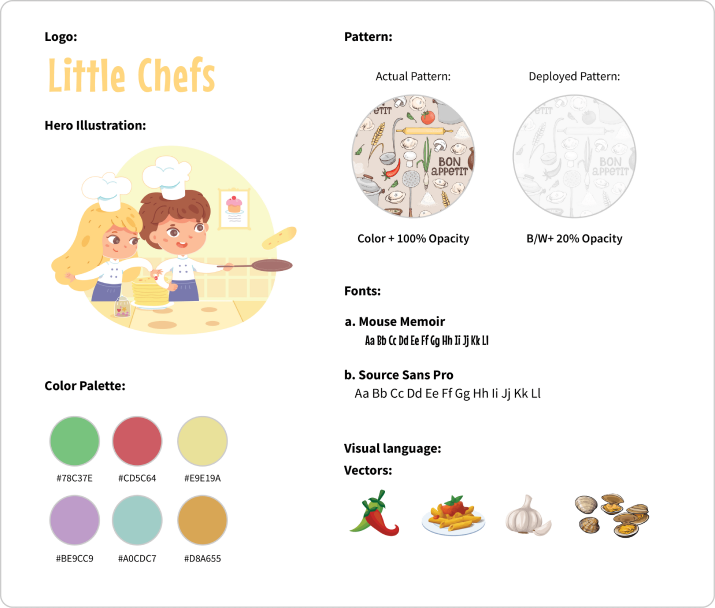
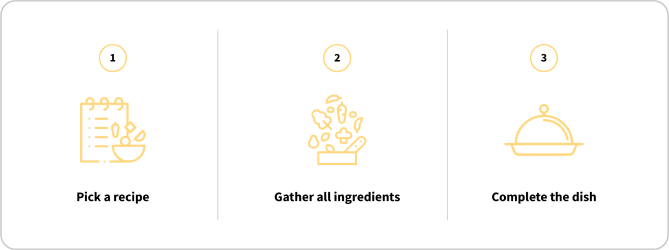
We came up with a simple concept for "Little Chefs", where players pick a recipe, gather all the required ingredients by navigating the game board, and complete a dish following instructions or engaging in cooking-related mini-games. It offers a fun and immersive culinary experience, combining strategy, creativity, and friendly competition. The first player to successfully complete their dish wins the game, showcasing their skills as a master chef.
Game Components - Ingredient Cards
The "Little Chefs" game includes a set of ingredient cards, which are essential components for gameplay. These cards represent the various ingredients needed to create delicious dishes. Each ingredient card typically features an illustration or image of the ingredient, along with its name and possibly additional information, such as nutritional facts or fun facts. The ingredient cards serve as a visual and informational reference for players as they gather the necessary items to complete their recipes.
Additionally all ingredients are color coded to make their category easy to identify.
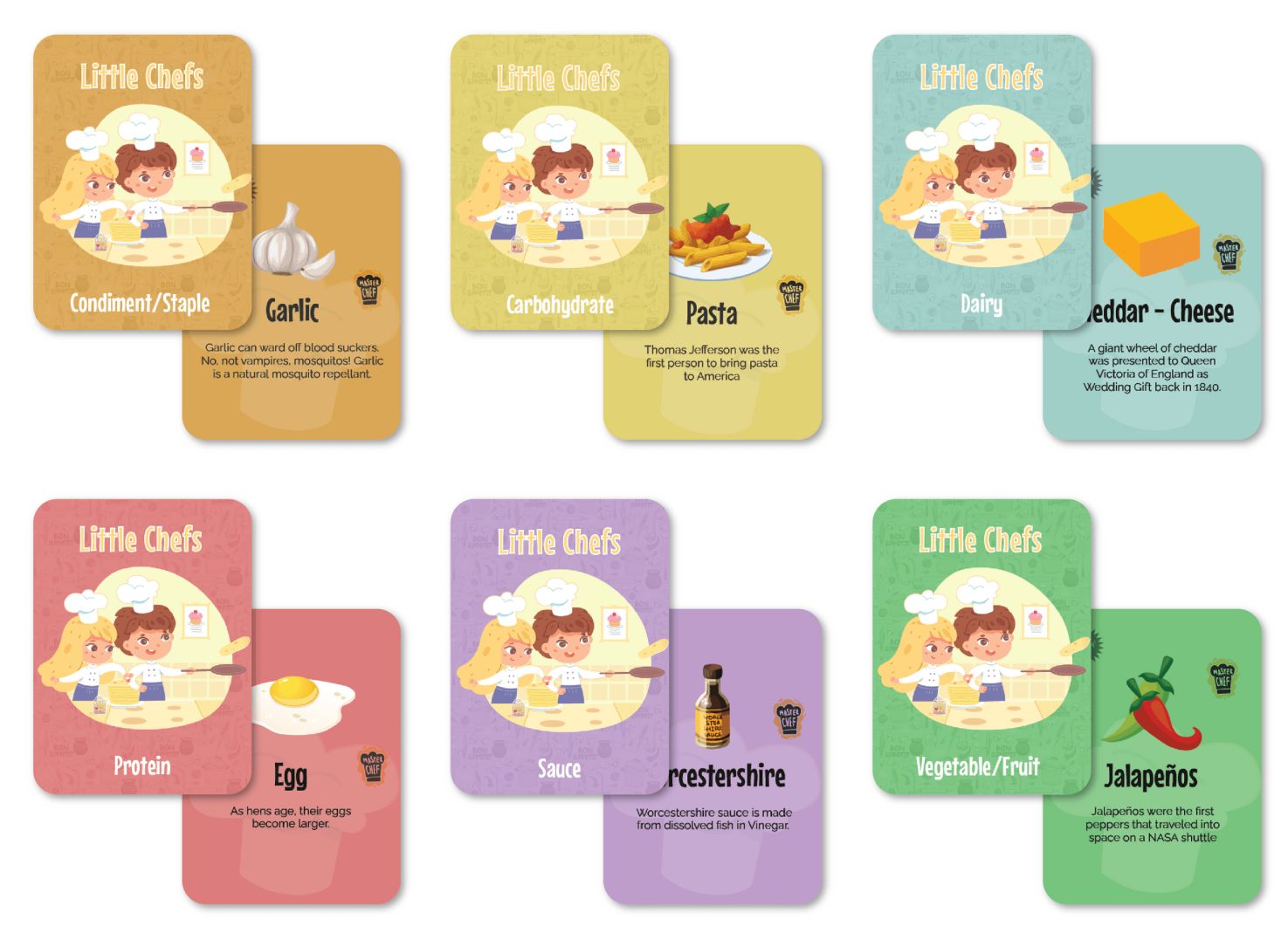
Game Components - Ingredient Cards
As part of the "Little Chefs" game, recipe cards play a crucial role in guiding players towards their culinary goals. Recipe cards provide step-by-step instructions for creating specific dishes within the game. Each recipe card typically includes a vibrant illustration of the completed dish, a list of required ingredients, and a clear set of instructions detailing the cooking process. These cards serve as a reference and guide for players, helping them follow the correct sequence of actions to complete their chosen recipe. Recipe cards add depth and variety to the gameplay experience, offering a range of dishes for players to explore and master throughout the game.
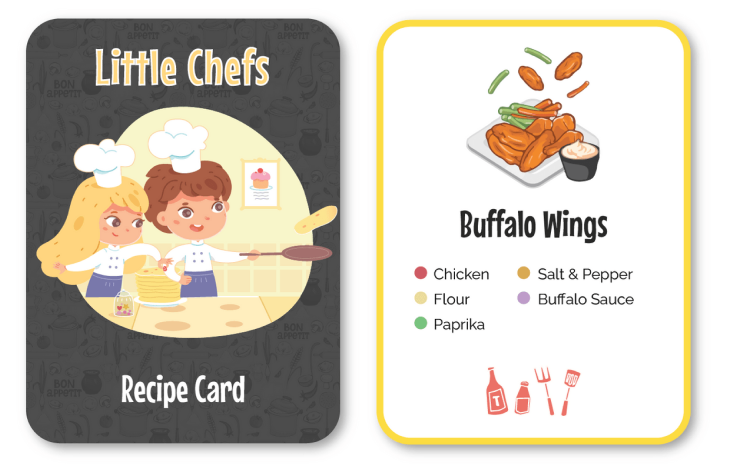
Game Board and Instructions Manual
The "Little Chefs" game board features ingredient cards to collect, a spin wheel option, and special features at the corners. Players strategically navigate the board, gathering ingredient cards that represent the necessary ingredients for creating dishes. The spin wheel adds an interactive element, offering different outcomes and choices. Special features at the corners provide unique advantages or challenges. Together, these components create an immersive and dynamic gameplay experience, where players must make strategic decisions and utilize the spin wheel and special features to complete their culinary quests successfully.
The instructions manual serves as a comprehensive guide for players, outlining the rules, objectives, and gameplay mechanics of "Little Chefs." It provides step-by-step instructions on how to set up the game, the actions players can take on their turns, and how to navigate various game elements such as the spin wheel, ingredient cards, and recipe cards. The manual ensures that players have a clear understanding of the game's mechanics, helping them make informed decisions and enjoy a smooth gaming experience.
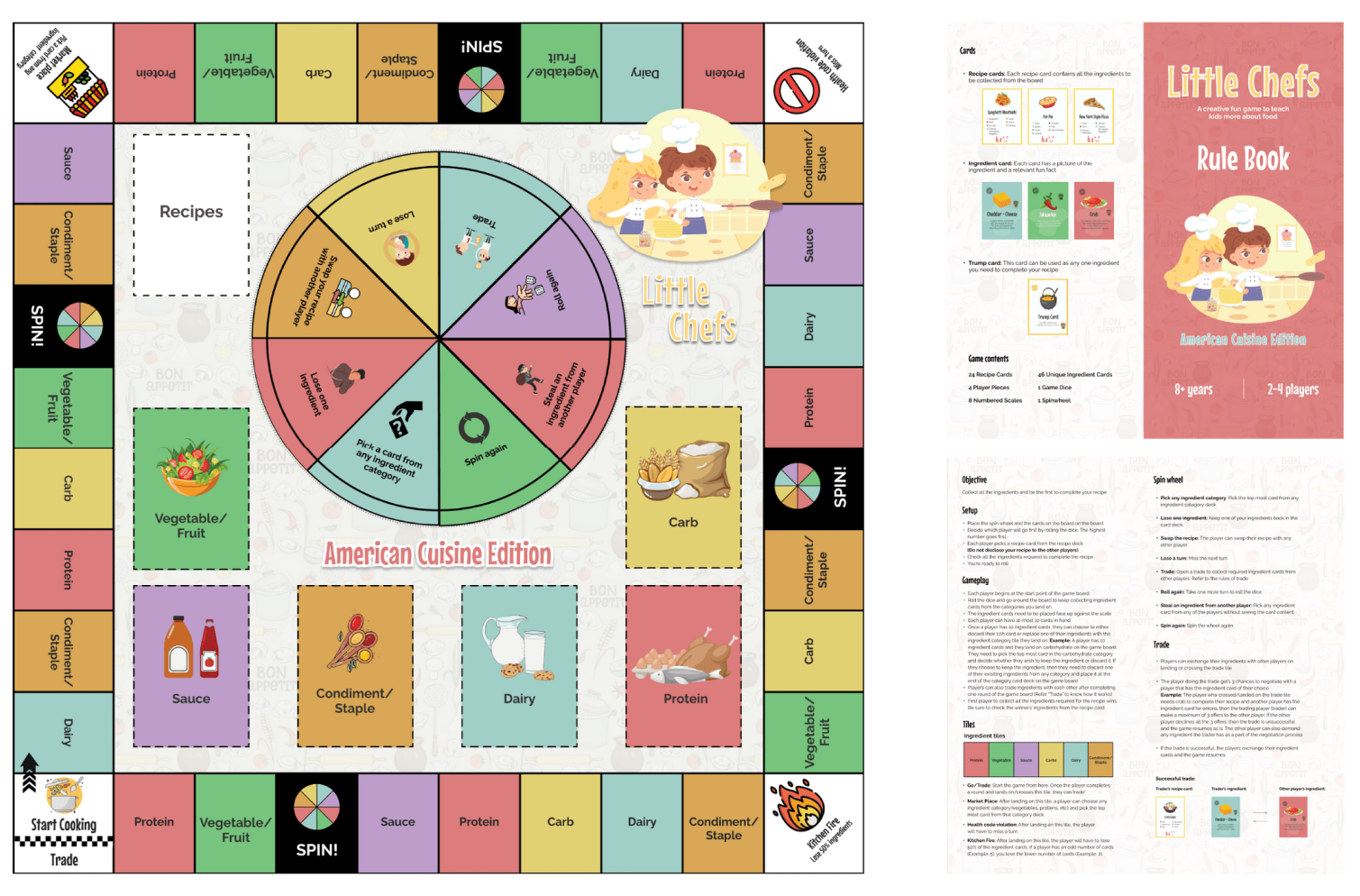
WEEK - 04
Poster Design and Final Product
For our board game, we created a compelling poster. We made design decisions with our target audience in mind, selecting components that speak to them and capture the essence of the game. The layout of the poster was specifically designed to draw attention to the game's distinctive features, fun gameplay, and intriguing subject. The game's components were illustrated with eye-catching, high-quality visuals that also alluded to the thrilling adventures that players might anticipate. Our graphic blends facts and aesthetics, giving a brief synopsis of the game while also arousing curiosity and urging spectators to explore the rich universe of our board game.
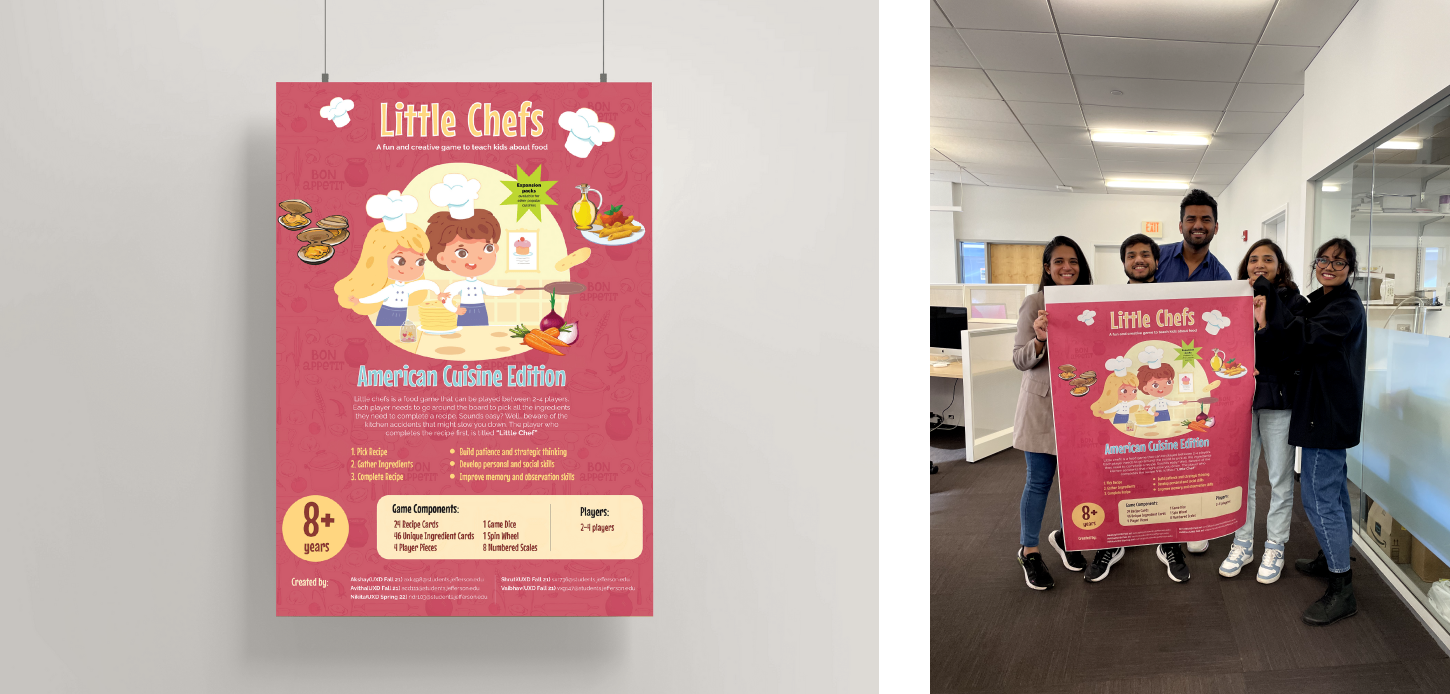
Business Model and Expansion
Our business plan suggests that licensing our product to reputable producers like Mattel or Hasbro will promote growth. In order to ensure that our product reaches a larger market and increases sales, our plan will take use of their industry expertise and reach.
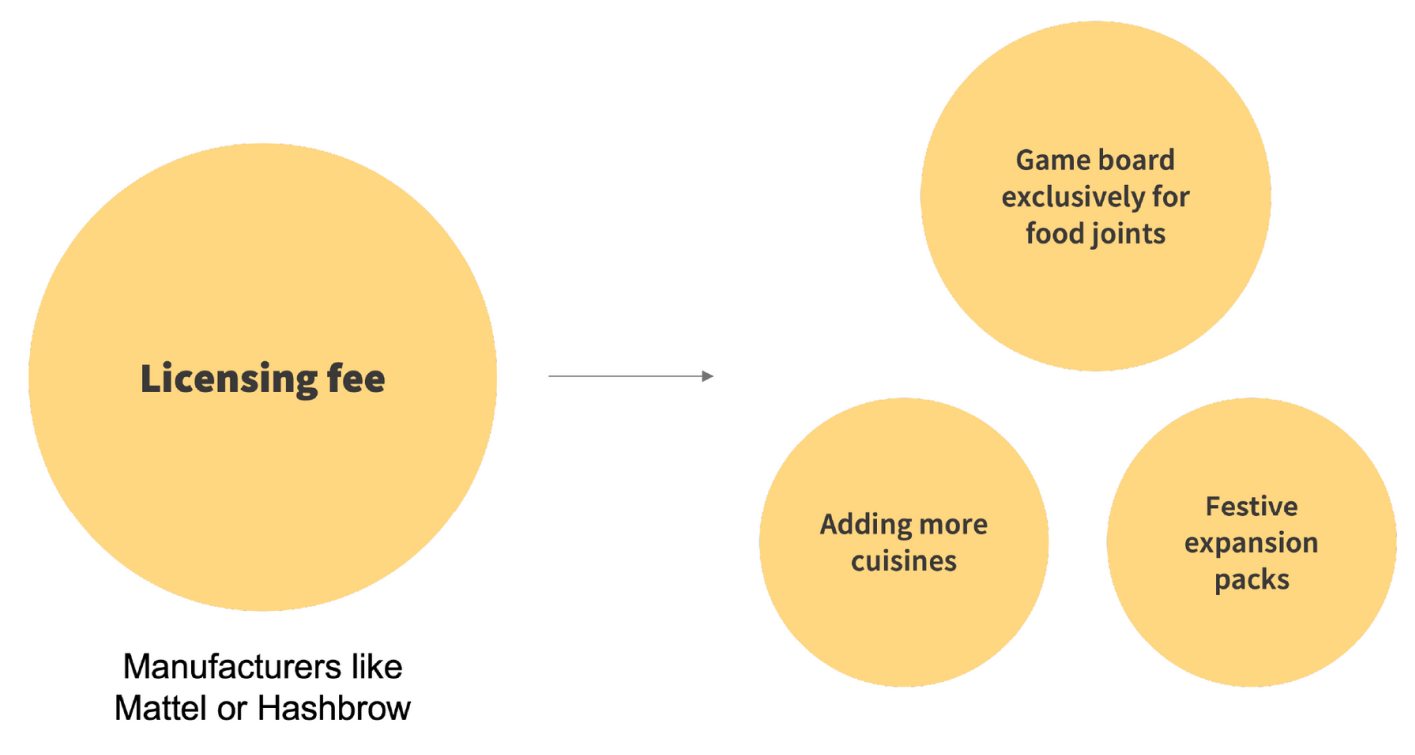
In addition, we intend to continuously enhance the appeal of our selection by releasing a variety of new expansion packs with culinary themes. These packs will give customers the chance to participate in a greater variety of culinary experiences, so boosting the attraction of the product and promoting repeat purchases.
Additionally, we'll target the holiday market by producing limited-edition festive expansion packs. These packs will satisfy consumers' need for holiday-themed goods, giving our product line a fresh and current appeal.
And finally, we plan to create unique gaming boards for restaurants. Customers will be given an additional unique experience thanks to these customized boards, making it both an entertaining game and a standout marketing tool for the businesses. With the help of this plan, we will be able to boost brand recognition, diversify our revenue sources, and build reliable relationships with other companies in the food and beverage sector.
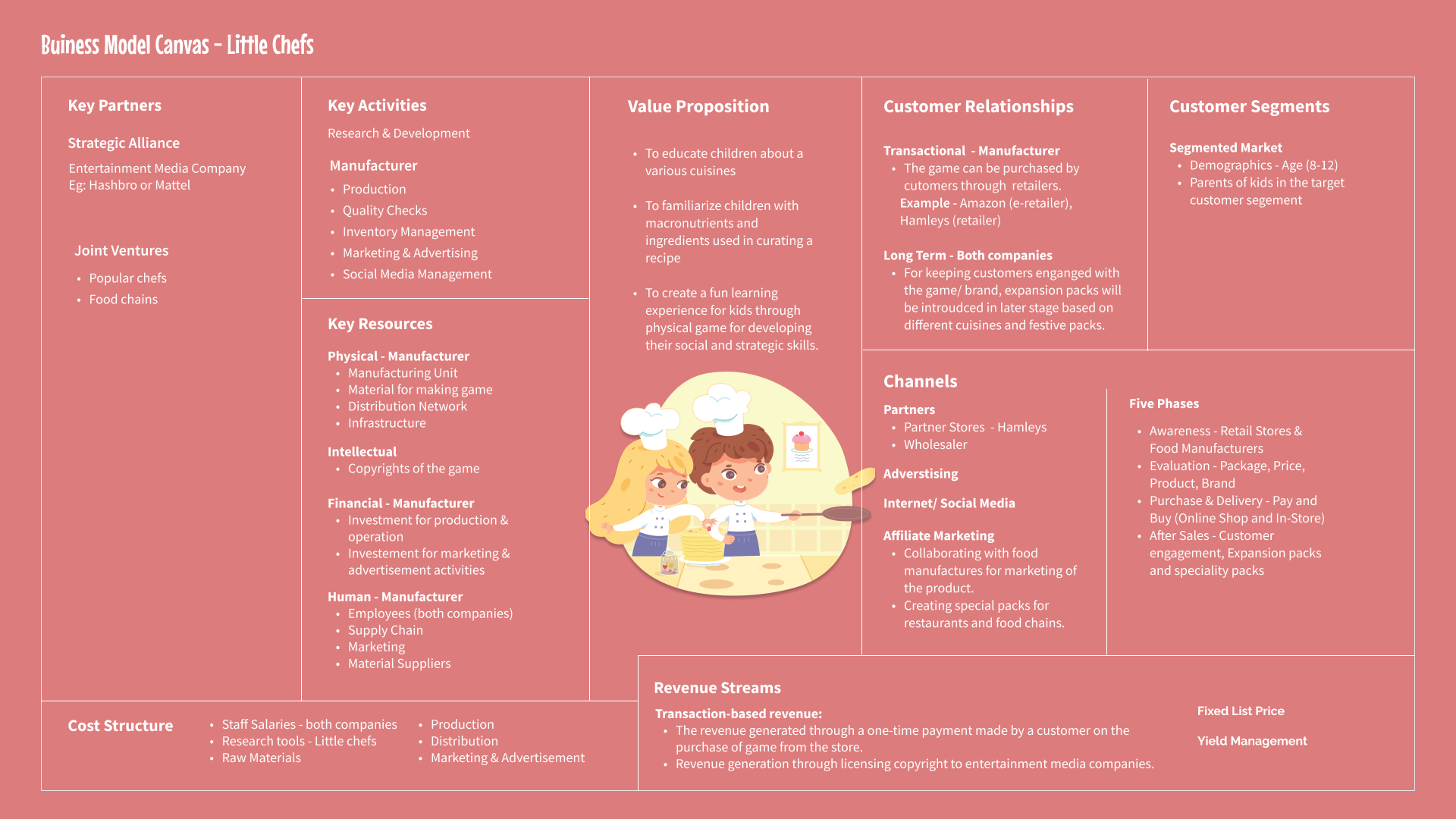
Production and Testing
Over the past week, we focused on completing the visual designs and generating print-ready files in order to construct a functional prototype. We then embarked on user testing using our newly created prototype, integrating and addressing initial user feedback to refine our design further. Concurrently, we dedicated our efforts towards finalizing our business model canvas, developing a compelling pitch deck, and designing attention-grabbing posters while the production of print-ready files was underway.
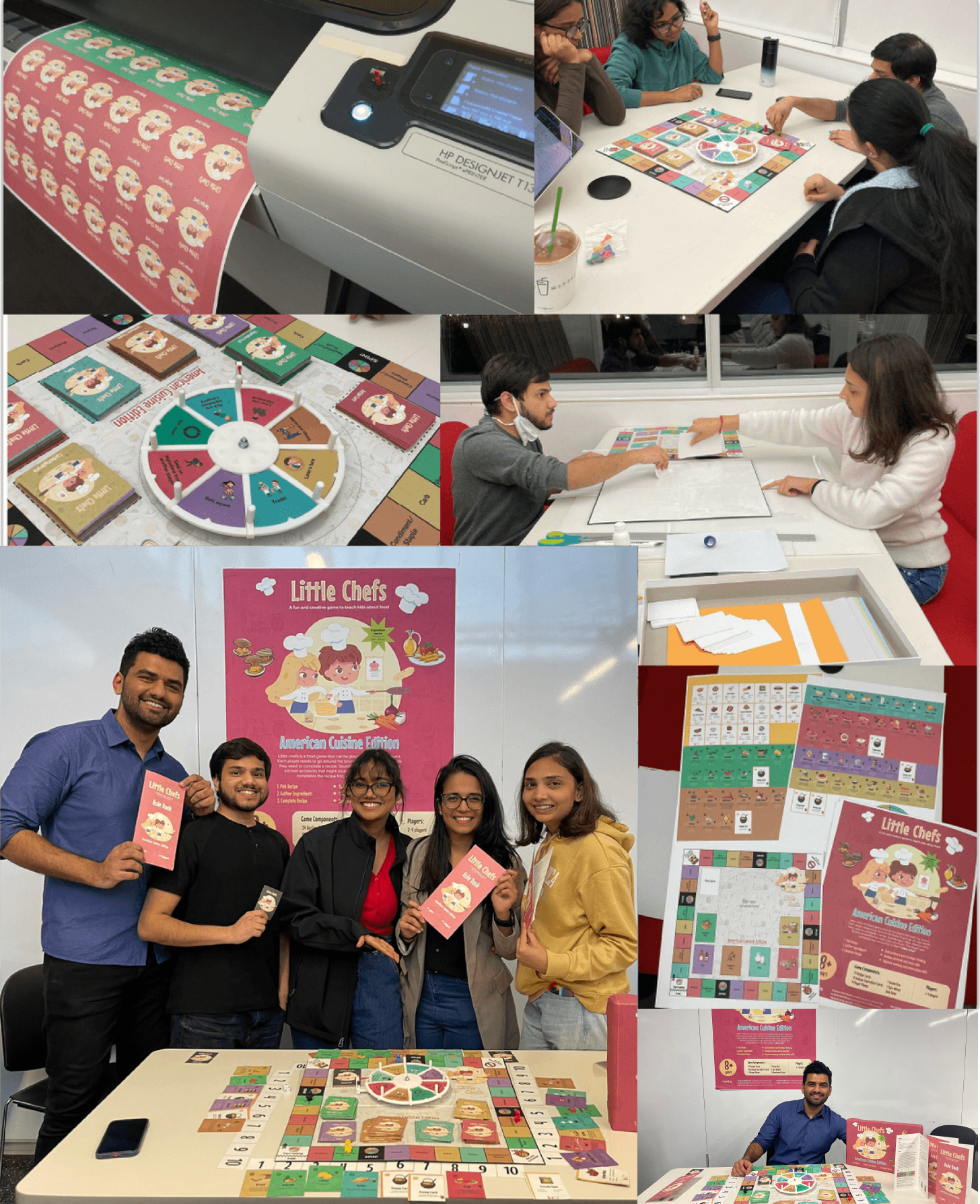
WORKING DEMO, GAMEPLAY & COMMENTS
CONCLUSION
The project has, in the end, served as evidence of our team's overall resiliency, adaptability, and dedication to excellence. Despite the difficulties we faced, each assignment was done effectively thanks to the excellent teamwork and tireless work of every team member. Our proactive and encouraging communication made it much easier for our project to smoothly change direction. Despite the compressed timetable, the effort was divided equitably after the pivot thanks to the proactive capacity planning we put in place, avoiding any instances of burnout.
In addition, we are excited to use the knowledge and insights we have learned from this project in our future endeavors and are confident in our ability to work together to meet and surpass any obstacles that may arise.
Let's Work Together
"Ready to transform your vision into captivating designs? Let's collaborate! With my design skills and our ideas, we can create something unique and impactful. Contact me and let's get started!"
Address
East Falls, Philadelphia, PA - 19144
Phone
(+1) 267-231-0774
vaibhavg0402@gmail.com

Vaibhav Gaikwad UX Portfolio
Ux | Ui Portfolio